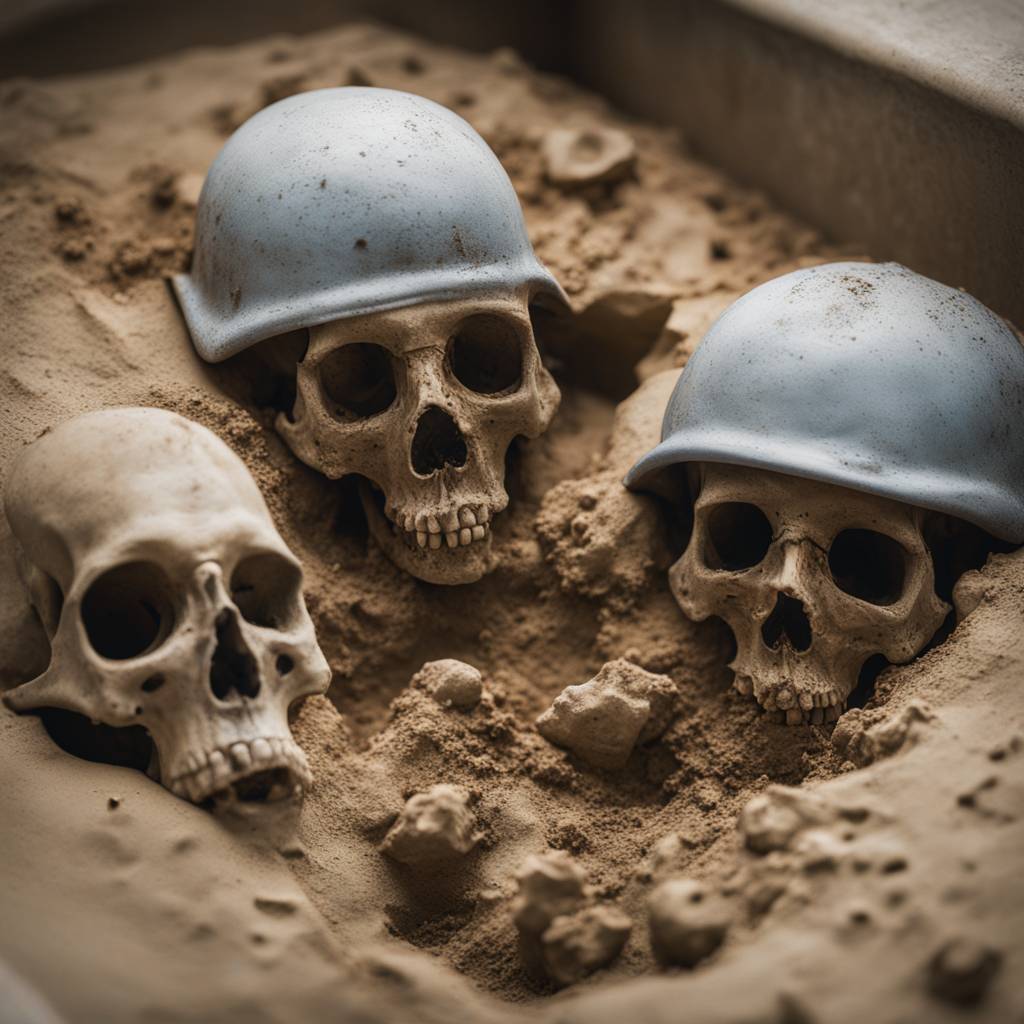Health workers in northern Gaza exhumed the first corpses from mass graves in and around Al-Shifa Hospital after Israeli forces killed hundreds of Palestinians and left their bodies to decompose during a two-week siege of the complex. At least 381 bodies were recovered from the vicinity of the complex since Israeli forces withdrew, with many of the decomposed remnants found buried or above ground. Witnesses and civilians who were trapped inside the hospital when it was raided reported that the vicinity was full of bodies, some of which had been plowed under by Israeli forces.
The World Health Organization and the UN’s Office for the Coordination of Humanitarian Affairs reached Al-Shifa Hospital earlier this month, after Israeli authorities repeatedly denied access to humanitarian teams. The UN reported that the hospital had become a graveyard, with bodies still in the courtyard. The Israel Defense Forces stated that they had completed operations against terrorist operatives and infrastructure at Al-Shifa, apprehending suspects and eliminating terrorists. The operation was carried out based on precise intelligence regarding terrorist activities in the area, including using the hospital as a command center.
Following the two-week siege, specialized facilities within the hospital complex were damaged, severely impacting the medical system in Gaza. UN experts accused Israel of denying access to healthcare to those most in need, calling the situation a genocide compliant with the laws of war. Targeting hospitals in wartime is prohibited under international law, but standards change if the facilities are being used by enemy combatants. The recovery efforts at Al-Shifa involved search and rescue teams digging for bodies in the rubble, as families searched for missing loved ones, looking for closure and dignified burials.
Gazan residents gathered at Al-Shifa Hospital to search for missing family members, with many finding loved ones among the bodies in the mass graves. Palestinians who lost family members shared their heartbreak and frustration with the lack of information about the fate of their loved ones. The recovery efforts aimed to give the bodies proper burials and provide closure to families who had been waiting for news about their missing relatives, hoping to find answers about their fate. The recovery process involved a collaborative effort between health workers, civil defense teams, and forensics experts to meticulously document and identify the remains.
The IDF confirmed its withdrawal from Al-Shifa on April 1, claiming to have eliminated a terrorist base at the hospital. The operation resulted in the death or capture of hundreds of terrorists, according to Israeli officials. Palestinian residents at Al-Shifa recounted their harrowing experiences during the siege, with reports of families being separated, detained, or killed. The recovery efforts highlighted the devastation of the conflict in Gaza and the toll it took on civilians caught in the crossfire. Gazans described the indignity of the deaths and the struggle to find closure and justice for their loved ones.
As Palestinians at Al-Shifa Hospital searched for missing family members and sought answers about their fate, the recovery efforts aimed to provide dignified burials for the unidentified bodies found in the mass graves. Families of the victims expressed their grief and frustration at the lack of information and the impact of the conflict on their lives. The recovery process was a somber reminder of the human cost of war and the need for accountability and justice for the victims. UN agencies and health workers collaborated to offer support to the families affected by the conflict and to honor the memory of those who lost their lives in the violence.








